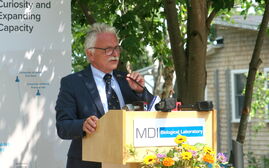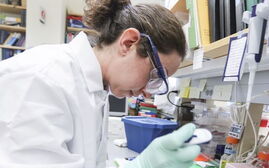Processing Your Payment
Please do not leave this page until complete. This can take a few moments.
- News
-
Editions
-
- Lists
-
Viewpoints
-
Our Events
-
Event Info
- Women's Leadership Forum 2025
- On the Road with Mainebiz in Bethel
- Health Care Forum 2025
- On The Road with Mainebiz in Greenville
- On The Road with Mainebiz in Waterville
- Small Business Forum 2025
- Outstanding Women in Business Reception 2025
- On The Road with Mainebiz in Bath
- 60 Ideas in 60 Minutes Portland 2025
- 40 Under 40 Awards Reception 2025
- On The Road with Mainebiz in Lewiston / Auburn
- 60 Ideas in 60 Minutes Bangor 2025
Award Honorees
- 2025 Business Leaders of the Year
- 2024 Women to Watch Honorees
- 2024 Business Leaders of the Year
- 2023 NextUp: 40 Under 40 Honorees
- 2023 Women to Watch Honorees
- 2023 Business Leaders of the Year
- 2022 NextUp: 40 Under 40 Honorees
- 2022 Women to Watch Honorees
- 2022 Business Leaders of the Year
-
-
Calendar
-
Biz Marketplace
- News
-
Editions
View Digital Editions
Biweekly Issues
- April 21, 2025 Edition
- April 7, 2025
- March 24, 2025
- March 10, 2025
- Feb. 24, 2025
- Feb. 10, 2025
- + More
Special Editions
- Lists
- Viewpoints
-
Our Events
Event Info
- View all Events
- Women's Leadership Forum 2025
- On the Road with Mainebiz in Bethel
- Health Care Forum 2025
- On The Road with Mainebiz in Greenville
- On The Road with Mainebiz in Waterville
- + More
Award Honorees
- 2025 Business Leaders of the Year
- 2024 Women to Watch Honorees
- 2024 Business Leaders of the Year
- 2023 NextUp: 40 Under 40 Honorees
- 2023 Women to Watch Honorees
- 2023 Business Leaders of the Year
- + More
- 2022 NextUp: 40 Under 40 Honorees
- 2022 Women to Watch Honorees
- 2022 Business Leaders of the Year
- Nomination Forms
- Calendar
- Biz Marketplace
MDI Bio Lab research uncovers mystery of why diet can prolong lifespan
 Photo Courtesy / MDI Biological Laboratory
Aric Rogers, a scientist at MDI Biological Laboratory, and his colleagues have discovered mechanisms by which aging is slowed by restricting certain nutrients in our diet.
Photo Courtesy / MDI Biological Laboratory
Aric Rogers, a scientist at MDI Biological Laboratory, and his colleagues have discovered mechanisms by which aging is slowed by restricting certain nutrients in our diet.
 Photo Courtesy / MDI Biological Laboratory
Using a tiny roundworm known as C. elegans that shares half of its genes with humans, MDI Biological Laboratory researchers found life-prolonging effects from certain dietary restrictions.
Photo Courtesy / MDI Biological Laboratory
Using a tiny roundworm known as C. elegans that shares half of its genes with humans, MDI Biological Laboratory researchers found life-prolonging effects from certain dietary restrictions.
Diets can prolong health and lifespan, but scientists haven’t known why until now, when researchers at MDI Biological Laboratory discovered a genetic pathway that explains the process.
The hope is that one day it may lead to therapies that could extend our healthy years without requiring severe dietary restrictions.
“Most diseases are age-related, so this is a way of avoiding almost all diseases,” MDIBL scientist Aric Rogers told Mainebiz in an interview this morning. He published a paper on the discovery with colleagues in the journal Aging Cell.
Rogers added, “It’s tantalizing to think that we may be able to activate a protective response to enhance our own health without resorting to extreme dietary regimes (that don’t cause malnutrition).”
MDIBL, based in Bar Harbor, is known worldwide for its research on aging, having held an international symposium last summer that Mainebiz wrote about in an article about the potential of living to age 150.
Regulating proteins
The Aging Cell paper reveals how regulating the creation of proteins in the body is essential during our early development and later in life in our response to stresses in our environment both inside and outside of the body. Stresses cause excess protein to be created, which in turn could degrade the ability of our cells to function properly, thus stimulating aging or disease.
“We know now how the genetic pathway that responds to nutrients gets activated and signals to other process, like protein synthesis,” he added. “Restricting the creation of new proteins is part of our ability to withstand great stress.” He said potential new drugs could target the activity of the pathway itself or modulate other behaviors in the body.
Rogers studied a tiny roundworm called C.elegans, used frequently in research because it shares about half of its genes with humans and lives only two to three weeks, allowing scientists to study many generations of the worms over a short timespan. They specifically looked at the large dietary components like proteins, carbohydrates and fats and what changes of those do to the body.
The researchers noted that the life-prolonging effects of dietary restrictions occur in just about every animal tested. They think that is so because of evolution and animals having to adapt to harsh environments, such as when there isn’t enough food to eat.
The new research builds on Rogers’ earlier research on dietary restrictions and their impact on the formation of proteins. With a lack of food, for example, the body decreases the amount of proteins it synthesizes for growth and reproduction. It then redirects energy in cells toward proteins that respond to the stress and help extend lifespan.
Pills for longevity?
The scientists noted that their discovery of the mechanism that underlies the protective effect of dietary restriction may some day lead to therapies for age-related diseases, including Alzheimer’s and Parkinson’s that are associated with less quality control within cells.
Rogers next step is to research the cause and effect of manipulating the genetic pathways that inhibit the formation of proteins to see if the body is better able to clear out damaged proteins and other “molecular clutter.”
“We think therapies to active these protective pathways could not only prolong lifespan, but also delay the onset of age-related diseases,” Rogers said.
The research was supported by grants from the National Institute on Aging of the National Institutes of Health, The Ellison Medical Foundation and an Institutional Development Award from the National Institute of General Medical Sciences of the NIH.














Comments